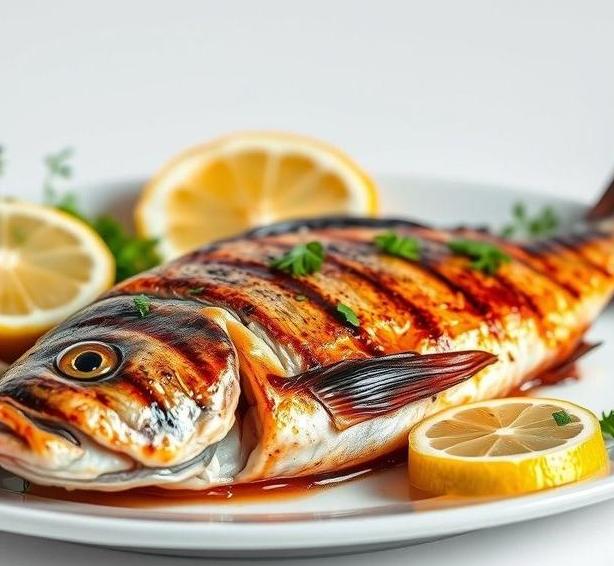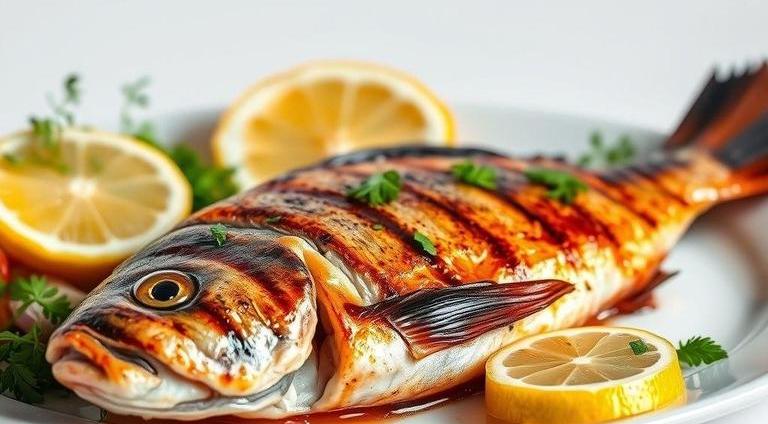Fish is an incredibly versatile and nutritious food that can be prepared in a variety of ways, from grilling to baking, frying, or steaming. Whether you’ve made a large batch for dinner or have leftovers from a restaurant, it’s important to understand how to properly store and preserve cooked fish to maintain its freshness and prevent any foodborne illnesses. Cooked fish, like all perishable foods, has a limited shelf life, and without proper storage, it can go bad quickly. So, how long is it safe to keep cooked fish, and how can you tell when it’s no longer good to eat? Let’s dive deep into these questions and more.
Can Cooked Fish Go Bad?
Absolutely! Cooked fish, like any other prepared food, has an expiration date. Though it’s high in protein, omega-3 fatty acids, and other essential nutrients, cooked fish is also rich in moisture, making it a prime breeding ground for bacteria if not stored correctly. Unlike canned or smoked fish, which undergo preservation processes, freshly cooked fish needs to be refrigerated and eaten relatively soon after cooking.
The main factors that contribute to the spoilage of cooked fish are:
- Bacterial growth: Fish is highly susceptible to bacteria such as Salmonella, Listeria, and Vibrio, which can multiply rapidly when the fish is not handled or stored properly.
- Oxidation: Fish fats, particularly omega-3 fatty acids, are prone to oxidation, leading to rancid or off smells and flavors when exposed to air and light.
- Moisture content: Fish’s high water content can promote the growth of microorganisms if left too long, even when refrigerated.
Shelf Life For Cooked Fish

So, how long can you safely store cooked fish? The shelf life depends on various factors, such as the type of fish, how it was cooked, and how it’s stored. However, the general guidelines are:
- Refrigeration: When stored properly in the fridge at a temperature of 40°F (4°C) or lower, cooked fish should be consumed within 3 to 4 days.
- Freezing: If you want to extend the life of your cooked fish, freezing is your best bet. When frozen, cooked fish can last anywhere from 2 to 3 months. However, keep in mind that freezing may affect the texture and taste, particularly for delicate fish like cod or sole.
It’s always important to note that these are just rough estimates. The condition in which the fish was cooked, how well it was stored, and the fish species itself can affect its longevity.
Common Signs Of Spoilage
Knowing when cooked fish has gone bad is essential to prevent any unpleasant surprises or foodborne illness. Here are some telltale signs that your fish may have spoiled:
- Off-smell: Fresh fish has a clean, ocean-like scent. Spoiled fish, on the other hand, gives off a sour, ammonia-like odor. If you notice this, it’s a clear sign that the fish is no longer safe to eat.
- Slimy or sticky texture: After being cooked and stored, fish should retain a firm, non-slippery texture. If it feels slimy or sticky to the touch, it could indicate bacterial growth, which makes it unsafe to consume.
- Color changes: Fresh fish typically has a slightly translucent appearance. As fish spoils, it may turn dull, grayish, or even slightly brown. This discoloration is a visual cue that the fish has begun to degrade.
- Off taste: If you do decide to take a bite and it tastes bitter or sour, discard the fish immediately. A sour taste is one of the most reliable indicators that the fish is past its prime.
- Mold or visible growth: If there is any mold or unusual growth, especially on the surface, it’s a sign that the fish is well beyond the safe eating point.
How To Store Cooked Fish?

Proper storage is essential to keep your cooked fish fresh for as long as possible. Here are some effective ways to store it:
Refrigeration
- Use airtight containers: To prevent the fish from absorbing other odors in the fridge, store it in an airtight container or wrap it tightly in plastic wrap or aluminum foil.
- Store promptly: As soon as your fish has cooled down after cooking, store it in the refrigerator. Don’t leave it at room temperature for more than two hours (or one hour if the room temperature is above 90°F/32°C), as bacteria can begin to grow rapidly at these temperatures.
Freezing
- Cool before freezing: Allow the cooked fish to cool down to room temperature before freezing to avoid condensation in the packaging.
- Package properly: Wrap the fish tightly in plastic wrap, followed by aluminum foil, or use a vacuum-sealed bag for the best protection against freezer burn.
- Label and date: Always label the fish with the date it was cooked and frozen so you can keep track of how long it has been stored.
Storage Tips
- Smaller portions: When freezing, break the fish into smaller portions so you can thaw only what you need.
- Avoid reheating multiple times: Repeatedly reheating cooked fish can reduce its quality and increase the risk of foodborne illness. Try to reheat only the portion you intend to eat.
Expert Tips
- Freshness matters: The fresher the fish is before cooking, the longer it will last after being cooked. If you start with fish that was near its expiration date, it won’t last long after cooking.
- Don’t overcook: Overcooking fish can dry it out and affect its storage life. Aim for cooking the fish just enough so it’s safe to eat but still retains its moisture.
- Freezing tips: If you plan to freeze cooked fish, remember that fatty fish like salmon may not freeze as well as leaner types such as cod or haddock. The texture and flavor can degrade in the freezer, but it will still be safe to eat.
- Vacuum sealing for extended storage: If you’re serious about freezing fish, investing in a vacuum sealer is a good idea. This removes the air from packaging, helping prevent freezer burn and preserve the fish for a longer period.
FAQs
Can Cooked Fish Go Bad If Left Out At Room Temperature?
Yes, cooked fish can go bad if left out at room temperature for more than 2 hours. Bacteria multiply rapidly between 40°F and 140°F (4°C and 60°C), which increases the risk of foodborne illness.
How Long Can Cooked Fish Last In The Refrigerator?
Cooked fish can typically last 3 to 4 days in the refrigerator if stored in an airtight container. Ensure the fridge is set to 40°F (4°C) or lower to maximize freshness.
How Can I Tell If Cooked Fish Has Gone Bad?
Signs that cooked fish has gone bad include an off or sour smell, slimy texture, discoloration, or a change in flavor. If it looks or smells unusual, it’s safer to discard it.
Can Cooked Fish Be Frozen To Extend Its Shelf Life?
Yes, cooked fish can be frozen for up to 2 to 3 months. Make sure it is tightly wrapped or placed in an airtight container to prevent freezer burn and maintain its quality.
Is It Safe To Eat Cooked Fish After It Has Been In The Fridge For 5 Days?
It is generally not recommended to eat cooked fish after 5 days in the fridge. After 3 to 4 days, the risk of bacterial growth increases, which can lead to foodborne illnesses.
Does The Type Of Fish Affect How Quickly Cooked Fish Goes Bad?
Yes, different types of fish may spoil at different rates. Oily fish like salmon and mackerel tend to spoil faster than lean fish such as cod or haddock due to their higher fat content.
Can I Reheat Cooked Fish After Storing It In The Fridge?
Yes, you can reheat cooked fish, but it should be done properly. Reheat it to an internal temperature of 165°F (74°C) to ensure safety. Avoid reheating fish multiple times to reduce the risk of contamination.
How Should I Store Cooked Fish To Prevent It From Going Bad?
Store cooked fish in an airtight container in the refrigerator or freezer to preserve its freshness. Make sure the fish is cooled to room temperature before storing it to avoid condensation inside the container.
Can Cooked Fish Be Left Out Overnight?
No, cooked fish should not be left out overnight. It should be refrigerated within 2 hours to prevent bacterial growth and foodborne illnesses. If left out for more than 2 hours, it’s safer to discard it.
Does Cooked Fish Go Bad Faster If It Has Been Seasoned?
Seasoning itself doesn’t necessarily cause cooked fish to spoil faster, but it can affect the flavor or texture of the fish over time. Spices or ingredients like garlic or lemon can also impact the shelf life of cooked fish.